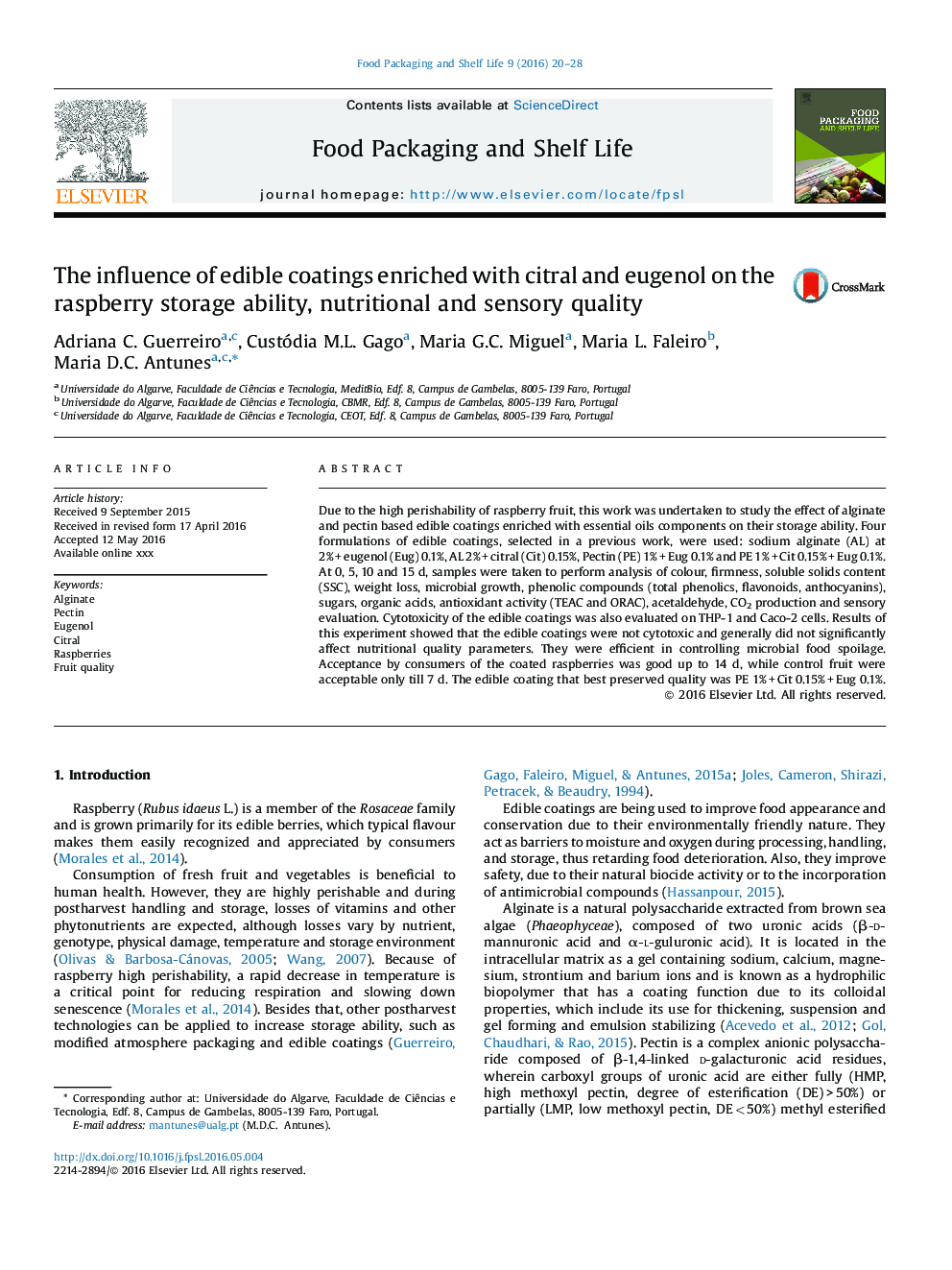| کد مقاله | کد نشریه | سال انتشار | مقاله انگلیسی | نسخه تمام متن |
|---|---|---|---|---|
| 19788 | 43129 | 2016 | 9 صفحه PDF | دانلود رایگان |
• Alginate and pectin edible coatings enriched with citral and eugenol were tested on raspberries.
• The edible coatings were efficient in controlling microbial food spoilage through 14 d storage.
• The edible coatings did not significantly affect general and nutritional quality.
• The best formulation was PE 1% + Cit 0.15% + Eug 0.1%.
Due to the high perishability of raspberry fruit, this work was undertaken to study the effect of alginate and pectin based edible coatings enriched with essential oils components on their storage ability. Four formulations of edible coatings, selected in a previous work, were used: sodium alginate (AL) at 2% + eugenol (Eug) 0.1%, AL 2% + citral (Cit) 0.15%, Pectin (PE) 1% + Eug 0.1% and PE 1% + Cit 0.15% + Eug 0.1%. At 0, 5, 10 and 15 d, samples were taken to perform analysis of colour, firmness, soluble solids content (SSC), weight loss, microbial growth, phenolic compounds (total phenolics, flavonoids, anthocyanins), sugars, organic acids, antioxidant activity (TEAC and ORAC), acetaldehyde, CO2 production and sensory evaluation. Cytotoxicity of the edible coatings was also evaluated on THP-1 and Caco-2 cells. Results of this experiment showed that the edible coatings were not cytotoxic and generally did not significantly affect nutritional quality parameters. They were efficient in controlling microbial food spoilage. Acceptance by consumers of the coated raspberries was good up to 14 d, while control fruit were acceptable only till 7 d. The edible coating that best preserved quality was PE 1% + Cit 0.15% + Eug 0.1%.
Journal: Food Packaging and Shelf Life - Volume 9, September 2016, Pages 20–28
